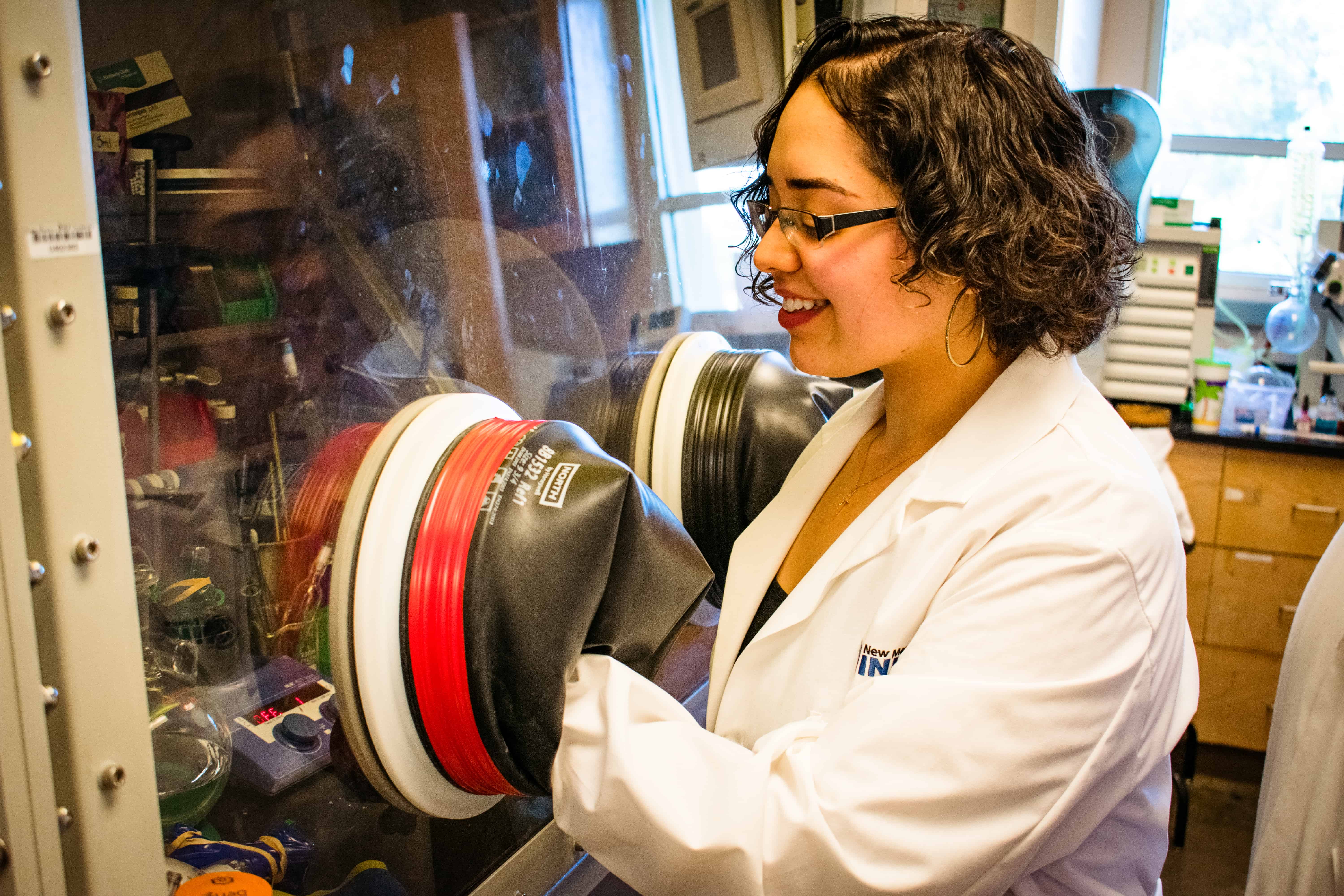NM-INBRE supports faculty development by helping with technology access grants, faculty time release, conference presentation support, mini sabbatical, and experiential learning projects.
NON-DRPP support that can be requested at any time

Technology Access Grants
To support high-quality research and training that depends on costly technologies, core facilities, services and/or expertise, NM-INBRE offers support for faculty and students at its member institutions to access relevant research tools.
Requests may include:
- Facility access and/or training costs
- Costs to obtain archived or gathered data sets, sample processing, or analytical services (such as DNA/RNA sequencing, -omics, etc.)
- Training costs required to use instrumentation at technical or core facilities
- Expert consultants such as those in biostatistics, bioinformatics, or other disciplines peripheral but necessary for sound experimental design or implementation
- Costs associated with technical training workshops for faculty or their lab personnel
Experiential Learning Program (ELP)
Course-based undergraduate research experiences (CUREs) effectively introduce students to authentic research early in their academic careers, positively impacting STEM interest, motivation, and diversity retention. NM-INBRE has extensive expertise with various CUREs, including Tiny Earth, iGEM, SEA-PHAGES, and Fly-CURE, and supports other models like PARE and the Small World Initiative, which engage Native American and Hispanic students. We are well-positioned to expand CUREs and support other experiential courses, such as service-learning focused on local socio-scientific issues, throughout our network.
Project Types
Planning Projects: Funds may be requested to develop (plan) a new CURE or other research-related or experiential course/curricular activities
Implementation Awards: Funds may be requested to implement a CURE or other research-related or experiential course/curricular activity

General Expectations:
- These courses are for degree-seeking undergraduate students and must be STEM-related, taken for credit to ensure accessibility, and designed to provide an authentic research experience or include it as a substantial component.
- The goal is to stimulate research interest, enhance persistence and retention in STEM, and foster a sense of belonging, with tangible outcomes reported, including demographics and post-graduation plans of participating students.
- Students’ progress will be tracked annually, and instructors will reflect on the course’s effectiveness and impact, assessing research and communication skills, and evaluating the course’s success in meeting its intended outcomes.
SBC Pilot Award RFP
The New Mexico IDeA Networks of Biomedical Research Excellence (NM-INBRE) Sequencing and Bioinformatics Core (SBC) invites you to apply for a pilot project award to drive your research, publications and grants!Award amount varies depending on various factors including your organization’s affiliation with INBRE, RAIN or NM-INBRE. Award may require a co-contribution.
Requirements
Proposals from ‘non’ NM-INBRE investigators will require a co-contribution to foster state, regional and national INBRE collaborations. Funds spent towards sequencing through NCGR or our partner can count towards this co-contribution.
Past winners may apply, but new applicants have priority if all other factors are equal.
On any material presented or published based on this work, acknowledgement of:
-
-
Funding provided by the NM-INBRE Sequencing and Bioinformatics Core (SBC) at NCGR through NIGMS IDeA-Award P20GM103451.
-
NM-INBRE SBC staff supporting the project and inclusion as co-authors. We will review and write sections of posters and papers.
-

NON-DRPP support that can be requested through your liaison
Faculty Release Time
Funds may be available periodically to cover faculty release time for the purpose of research-related activity that is not direct project support. Examples of appropriate release-time requests include developing a research project proposal or research manuscript. Release time must be approved by the applicant’s institutional supervisor and administrative official.
Conference Presentation Support
Conference support may be provided to cover the cost of registration and/or travel to professional meetings or conferences for researchers who will be presenting their research and may be students or faculty (while funds are available).
Grant pre-review services
NM-INBRE will arrange for expert peer review for your NIH grant application at no charge. We also can provide administrative review.
Publication Costs
Investigators may have access to funds to cover publication costs associated with their research findings. These funds can help offset expenses such as article processing charges, ensuring that their work reaches a wider audience without financial barriers.
Equipment & Infrastructure investments
Keep your liaison updated on current and future infrastructural needs. Funds become available periodically.
Liaisons can request any of these funds for faculty at your institutions here.
Mini-Sabbatical
Funding level 1: $5,000 ‐ $25,000 annual direct costs
Funding duration: single academic term or year, depending on application type and justification.
Characteristics of Mini-Sabbatical:
- Immersion experience at a non-PUI institution
- Work with investigator who has established research program
- Develop new data for collaborative publications and/or grant submissions
- Learn new approaches or techniques to take back to home institution
NM-INBRE Institutional Liaisons
Institution |
Liaison |
|
| Eastern New Mexico University (ENMU) | Dr. John Montgomery | john.montgomery@enmu.edu |
| New Mexico Highlands University (NMHU) | Dr. Ian Williamson | iwilliamson@nmhu.edu |
| New Mexico Tech (NMT) | Dr. Sneza Rogelj | snezna.rogelj@nmt.edu |
| Northern New Mexico College (NNMC) | David Torres | davytorres@nnmc.edu |
| San Juan College (SJC) | Dr. Eric Miller | millere@sanjuancollege.edu |
| Western New Mexico College (WNMU) | Dr. Kathy Whiteman | kathy.whiteman@wnmu.edu |
| New Mexico State University (NMSU) | Dr. Shelley Lusetti | slusetti@nmsu.edu |
| University of New Mexico (UNM) | Dr. Bill Shuttleworth | bshuttleworth@salud.unm.edu |
| Dona Anna Community College (DACC) | Joe Butler | jbutler@dacc.nmsu.edu |
| National Center for Genome Resources (NCGR) | Joann Mudge | jm@ncgr.org |
| Burrell College of Osteopathic Medicine (BCOM) | Alexander Gasparian | agasparian@burrell.edu |
